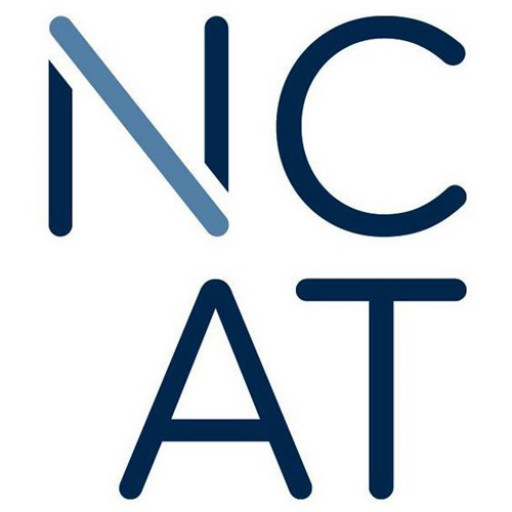This qualification reflects the use of individuals who employ a wide range of technical skills in photo imaging, for example lighting, image capture, enhancements and manipulation and output. Exercise at this level is predominately digital. It is underpinned by the effective use of integrated theoretical, technical and historical knowledge of photo imaging and the capability to come up with concepts and solutions in reply to a brief. Practitioners can work in a range of industry contexts, for example retail, commercial, domestic portrait, press, wedding, descriptive, institutional and art photography. Licensing/Regulatory Information No certification, certification or legislative conditions affect this qualification during the time of publication.
The Photography and Photo Imaging program at Northern College of the Arts and Technology offers a comprehensive curriculum designed to develop students' technical skills, creative abilities, and theoretical understanding of modern photography. Throughout the program, students are introduced to the fundamental principles of image capture, including camera operations, lighting techniques, and composition. They explore various genres of photography such as portrait, landscape, commercial, and abstract, enabling them to identify their areas of interest and specialization.
The program emphasizes hands-on learning, with students engaging in studio sessions, outdoor shoots, and post-processing exercises using industry-standard software. Coursework includes lessons on digital editing, color correction, retouching, and printing techniques, preparing students to produce professional-quality images. In addition to technical skills, students gain critical insight into the history and theory of photography, exploring iconic works and contemporary trends, which enhances their artistic vision and contextual understanding.
Students also have opportunities to develop their portfolio through ongoing projects and exhibitions, preparing them for careers in commercial photography, fashion, advertising, editorial work, or freelance ventures. The program incorporates workshops, guest lectures from industry professionals, and field trips to important photographic sites, providing real-world experience and networking opportunities. Throughout their studies, students are encouraged to experiment, take creative risks, and develop a distinctive personal style.
By the end of the program, graduates will possess a robust set of practical skills, a well-rounded understanding of photographic concepts, and a strong portfolio that showcases their talents and versatility. Whether pursuing further education or entering the professional industry directly, students will be equipped with the knowledge and confidence to succeed in the dynamic field of photography and photo imaging.
Program requirements for the Photography and Photo Imaging program at Northern College of the Arts and Technology typically include a combination of academic prerequisites, portfolio submissions, and technical competencies. Prospective students should possess a high school diploma or equivalent, demonstrating foundational skills in art and design. Prior experience with digital and traditional photography methods is highly recommended, although not always mandatory. Applicants are often required to submit a portfolio that showcases their creativity, technical skills, and understanding of photographic concepts, which allows admission committees to assess their potential for success in the program. Additionally, proficiency in basic computer skills and familiarity with editing software such as Adobe Photoshop or Lightroom can be advantageous. Some programs may also require a personal statement or interview as part of the application process to evaluate the applicant's motivation and commitment to the field. Entrance requirements might specify a minimum grade point average (GPA) or equivalent academic achievement to ensure students can cope with the program’s rigor. Participants are expected to demonstrate adaptability and a keen interest in current photographic trends and technologies. The program aims to develop professional skills necessary for careers in commercial, fine art, or documentary photography, and therefore encourages applicants with a passion for visual storytelling and a strong work ethic. Overall, the admissions criteria are designed to select candidates with a balanced combination of technical ability, artistic talent, and academic readiness, ensuring that students are well-prepared to undertake the specialized coursework related to Photo Imaging.
Funding options for the Photography and Photo Imaging program at Northern College of the Arts and Technology typically include a variety of financial aid and support mechanisms designed to assist students in covering tuition fees and related expenses. Prospective students are encouraged to explore government-funded student loans, which often provide low-interest rates and flexible repayment plans, enabling them to finance their education without immediate financial burden. Additionally, the college may offer scholarships and bursaries based on academic achievement, talent, or financial need, helping to reduce the overall cost of attendance. Part-time work opportunities, both on-campus and within the local community, are also viable options for students seeking additional income to support their studies. Federal and provincial funding programs may be accessible depending on the student's residency status and specific circumstances, supplementing personal funds or family support. Furthermore, private student loan providers may offer personalized loan packages, although students are advised to carefully review the terms and conditions before proceeding. It is important for students to complete the Free Application for Federal Student Aid (FAFSA) or the relevant provincial financial assistance application to determine eligibility for available aid programs. The college’s financial aid office provides comprehensive guidance and assistance in navigating these options, ensuring students understand the application processes, deadlines, and qualification criteria. Moreover, students enrolled in the program should consider budgeting strategies to manage living expenses, equipment costs, and materials, which are integral to the field of photography and photo imaging. Some students may also explore community grants or special funding initiatives related to arts and creative industries. Overall, securing adequate financing requires careful planning, early application, and awareness of all the available resources to ensure a smooth educational journey and successful completion of the program.
The Photography and Photo Imaging program at the Northern College of the Arts and Technology is designed to provide students with a comprehensive understanding of both traditional and digital photographic techniques, as well as the technical and artistic skills necessary to succeed in the dynamic field of visual arts. The program emphasizes practical experience, fostering creativity, technical proficiency, and a strong foundation in the history and theory of photography. Students are introduced to various photographic styles, from fine art and portraiture to commercial and documentary photography, enabling them to develop their unique visual voice.
Throughout the course, students gain hands-on experience with advanced camera equipment, lighting setups, and editing software, ensuring they are well-equipped to handle professional photographic assignments. The curriculum also covers post-processing techniques, printmaking, and image management, preparing graduates for roles in marketing, advertising, editorial, and fine art photography. In addition, students explore the use of emerging technologies such as digital imaging, Photoshop, Lightroom, and mobile photography, staying abreast of technological innovations that influence the industry.
The program is structured to include both classroom-based instruction and practical studio work, often involving collaborative projects and real-world assignments to simulate industry scenarios. Faculty members are experienced professionals with backgrounds in various photographic fields, providing mentorship and insight into the industry's demands. The program also encourages internships and industry placements, giving students valuable networking opportunities and a chance to build their portfolios.
Successful graduates of the Photography and Photo Imaging program are well-prepared to pursue careers as freelance photographers, studio professionals, photo editors, or to continue their education in specialized fields such as visual arts or multimedia. The program aims to cultivate not only technical skills but also critical thinking, visual literacy, and ethical considerations related to image-making. Overall, it offers a balanced mix of artistic development and professional preparation, ensuring students graduate ready to contribute creatively and effectively to the visual industry.










